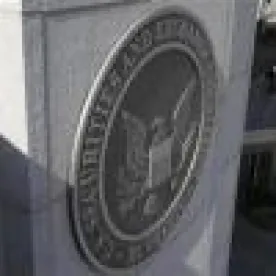Some very loud whistles have been blowing across corporate America since 2011 – whistles valued at $107 million, in fact. The United States Securities and Exchange Commission announced on August 30, 2016, that since its whistleblower program began in 2011, they have awarded more than $107 million total to 33 individuals who voluntarily provided the SEC with original and useful information that led to a successful enforcement action. Whistleblower awards can range from 10 percent to 30 percent of the money collected when the SEC’s monetary sanctions in a matter exceed $1 million.
The SEC encourages employees to report suspected wrongdoing, because they, according to Acting Chief Jane Norberg, “are in unique positions behind-the-scenes to unravel complex or deeply buried wrongdoing.” And, last year alone, employees responded by providing nearly 4,000 tips to the agency. With this kind of incentive from the SEC and other government agencies, as well as a growing number of successes in whistleblower lawsuits, it is more important than ever for companies to get advice on a regular basis. Moreover, companies must be strategic and proactive in their approach to implementing an effective whistleblower protection and anti-retaliation system.
Key elements of an effective whistleblower protection and anti-retaliation system include:
-
Clear and visible leadership commitment and accountability. This is truly the most important piece of the puzzle. Without sincere support from the top, no internal whistleblower program can succeed.
-
The creation of a true “speak-up” organizational culture focused on prevention, including encouraging employees to raise all suspicions and issues quickly and insuring the fair resolution of such issues.
-
Independent, protected resolution systems for employees and third-parties who believe they are experiencing retaliation as a result of raising concerns.
-
Specific training to educate all employees about their rights and available protections (including both internal and external programs).
-
Specific training for managers who may receive complaints or information from employees, requiring the manager to be considerate of the employee making the report, to be diligent, and, most importantly, to act on the information with no corporate tolerance of the “just telling me as a friend, not as a manager” excuse.
-
Internal monitoring and measurement of corporate compliance efforts and the effectiveness of the speak-up and non-retaliation culture, without contributing to the suppression of employee reporting.
-
Independent auditing to determine if the whistleblower protection and anti-retaliation system is actually working.




 />i
/>i

